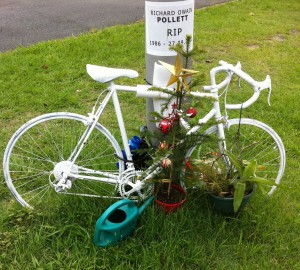As far as I can tell from the news reports, Julia Gillard wasn’t subjected to any actual violence today (unless you count being dragged to the car by her coppers), but we’ve never seen a Prime Minister being dragged by security like that before. It is reasonable to infer that there was a serious risk that the crowd might turn violent.
One thing I find really disturbing is the rush by some to excuse the protesters’ intimidating conduct. As can be seen on this thread on facebook, some feel the violence is justified because of the treatment of aborigines in the past.
They have been badly treated. That is inarguable. They lost a whole continent. From time to time they were murdered or assaulted when they wouldn’t co-operate and, on occasion, just for the hell of it. Whatever spin you put on the removal of children from aboriginal families, however well intentioned it may have been in a few cases, the trauma of such systematic removal caused long term scars.
All of that is true, but we aren’t at war. We are, now, a nation. A nation is a settlement amongst its citizens. You don’t get to be part of a democratic nation and, at the same time, claim the right to violent reprisals against that nation for past wrongs.
The other disturbing factor is the sense of right in the protesters. The protest was said to have been motivated by the remarks of Tony Abbott earlier in the day when he suggested the Tent Embassy outside Parliament House should be closed. What were his incendiary words? Well here is how SBS reported them:
Tensions boiled over on Thursday afternoon following comments Mr Abbott made in Sydney earlier in the day.
Mr Abbott said he understood why the tent embassy was set up “all those years ago”.
“I think a lot has changed for the better since then,” he told reporters.
“I think the indigenous people of Australia can be very proud of the respect in which they are held by every Australian.
“I think a lot has changed since then, and I think it probably is time to move on from that.”
So, hardly the stuff of rabble rousing, but according to the founder of the Tent Embassy, Michael Anderson, they amounted to inciting racial riots. Really?
The reaction to those words, which are obviously measured (whether or not they are correct) was to surround a building at which outstanding citizens were being honoured and intimidate those within. The point is obvious: disagree with us and the threat of violence is there.
It is not enough to say that Abbott’s comments re-opened old wounds and that indigenous Australians were so badly treated in the past that they are entitled to act violently. The logical extension of that argument is that they are entitled to continue to act violently until the score is evened up, at which point, it’s a free-for-all and we can punch the crap out of each other.
Update: It is encouraging to see that the behaviour of the mob has been roundly condemned by a number of aboriginal leaders
